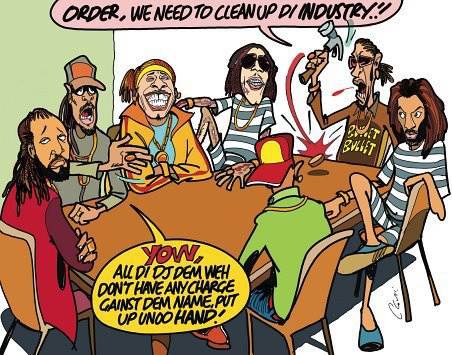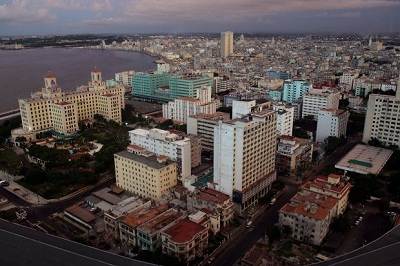TURN HER OVER TO SOCIAL SERVICES MADDA
MIRAMAR —
A 17-year-old girl who was the subject of a massive search after she disappeared a week ago has been found unharmed, police said Wednesday.
Under police questioning, Naketa Leiba confirmed that she ran away from home, police said. On general terms, she said she was having problems at home, police said. As one example, she recalled being reprimanded for a tattoo she got in December, police said.
She was found by police about 11 p.m. Tuesday roughly 3 miles west of her Miramar residence, hiding at a friend’s apartment near the 8400 block of Sherman Circle, according to police.
Video: 2012 Top Super Bowl Commericials
“She was hiding under a bunk bed, clearly not wanting to be found,” said Tania Rues, Miramar police spokeswoman.
Naketa’s case got a mixed reaction from the public.
“I think she should be punished for it,” said Leslie Thomas, 43, whose Hollywood home was visited this week by volunteers circulating fliers. “Her mother was worried sick.”
Thomas’ 10-year-old daughter, Shanice, overheard her mother and told her: “You’d slap me blue for something like that!”
Kim Clark, 23, a mother of three, also lives in the area canvassed by volunteers. On Wednesday afternoon, Clark said she still doubted Naketa ran away. “I don’t think she would let her mommy and daddy go through that torture.”
According to police, no charges were pending against Naketa, who was found at the apartment with her friend, a pregnant 18-year-old woman, as well as her friend’s cousin.
Naketa and her friends said they were aware of the search after “they saw a flier,” Rues said.
But Naketa “claimed that she wasn’t watching the news, and that she was not completely aware of the extent of the search for her,” Rues said.
The nearly weeklong police investigation involved “hundreds and hundreds” of staff hours and dozens of employees at an estimated cost of tens of thousands of dollars, Rues said. The FBI also was involved.
“It’s unfortunate that so much time and money was dedicated in trying to locate someone who did not want to be found,” Rues said. “These resources could have been used to help true victims of crime.”
Asked whether police would be compensated, Rues replied: “Unfortunately, that is unlikely to happen.”
Between last week and Tuesday, family, friends and supporters had centered their search efforts around Washington Park, near State Road 7 and Pembroke Road in Hollywood, the last area where Naketa Leiba’s cellphone was believed to have sent out a signal, according to her parents.
Naketa’s parents repeatedly expressed their belief that she wasn’t a runaway and likely was being held against her will. The teen was brought back to her parent’s home about 3:45 a.m. Wednesday, police said.
In front of news cameras Wednesday morning, her father, Michael Leiba, said Naketa wasn’t acting the same, and said he was concerned about her health.
“We’re going to take her to the hospital and get a physical,” Michael Leiba told WSVN-Ch. 7. “We thank everyone for their support we’re glad that our daughter is back.”
The parents later were seen escorting someone who may have been Naketa into a van and driving away. A woman inside the family’s home, who identified herself as a family friend, declined to comment.
Naketa vanished the afternoon of Feb. 1 after getting off a school bus near the 6800 block of Southwest 34th Street in Miramar, police said.
Naketa called her mother, a substitute teacher in Broward County, for a ride home. But her mother, Sharon Leiba, said her school was on a security lockdown and she couldn’t leave. Naketa Leiba told her she would probably walk home, her mother said.
About an hour later at 4:25 p.m., she told her mother in a phone call that she was “on my way.”
Police said they tracked Naketa to the apartment Tuesday night after obtaining an address linked to a cellphone Naketa used after her disappearance.
She had used the cellphone the day after she disappeared to phone her mother and tell her that she left home, police said. Don’t go searching for me, the girl told her mother, according to police.
Her mother told police about her daughter’s call, Rues said.
Even though police believed she had ran away, her parents told police they felt she could have been coerced into making the call, authorities said. Police told Naketa’s parents not to discuss such investigative details publicly, Rues said.
“There was information that we couldn’t release at the time, because we feared it would jeopardize the investigation and cause her to go deeper into hiding,” Rues said. “A lot of runaways end up in the wrong hands.”
During their inquiry, police found several things that led them to suspect Naketa ran away: A domestic incident at the home last year, Naketa discussing her life through her Twitter account, and no one reporting any suspicious activity around the time she disappeared.
Also, certain details weren’t disclosed to police by the parents, Rues said. Broward court records show that the parents divorced in late January.
“There are a lot of things that we were unaware of that could have potentially changed the scope of the investigation,” Rues said.
The omissions aren’t likely result in charges against the parents, Rues said. Throughout the ordeal they and police had the same goal: “to bring her back safely,” Rues said.
Sean Kendrick, the co-owner of K&K Grocery, a store across the street from Washington Park, said he saw Naketa’s mother and volunteers circulating fliers near his store Tuesday.
Naketa “wasted everybody’s time,” Kendrick said. “What will happen when other people come up missing and everyone thinks they’re crying wolf?”
Rues replied: “We take every missing-juvenile case seriously.”
[email protected] or 954-356-4701
Copyright © 2012, South Florida Sun-SentinelSingle and Mingle. Fun, entertainment and more. Get your tickets today
MALDIVES A GWAAN WID TINGS
27CDB6E-AE6D-11cf-96B8-444553540000" id="ep">
(CNN) — Police attacked the former Maldives president Wednesday, beating him up a day after he stepped down, the Maldivian Democratic Party said in a statement.
“We strongly condemned the violent attack by the Maldivian Police Service on President (Mohamed) Nasheed and senior officials of the MDP,” the party said in a statement. “President Nasheed is being beaten up as of now in an ongoing peaceful protest.”
Earlier Wednesday, Nasheed had called for his successor to leave office, saying he was forced to resign in a coup.
Nasheed resigned Tuesday after a revolt by police officers. Vice President Mohammed Waheed Hassan was sworn in as president shortly after Nasheed resigned.
Police mutiny in Maldives Maldives reverses spa ban
Nasheed and the Maldivian Democratic Party are calling his forced resignation a coup, said Eva Abdulla, a member of Parliament.
Police also attacked other party leaders and members of Parliament Wednesday, the party said.
Abudulla said police had stormed into hospitals and were beating people there.
Nasheed was the first democratically-elected president of the Indian Ocean nation in three decades.
In a nationally televised address, he said he was stepping down because he didn’t feel he was able to maintain security and peace in the country, which attracts hundreds of thousands of tourists every year.
Strategically located in the Indian Ocean but extremely poor, the country is threatened by rising sea levels.
Nasheed once held a Cabinet meeting underwater, with ministers wearing scuba gear, to highlight the problem.
WELL……………………… DEM POOR NOW YES
Peggy Blair‘s debut novel, The Beggar’s Opera, will be published this month by Penguin Canada. It was shortlisted for the 2010 Debut Dagger Award. Her first book of non-fiction, Lament for a First Nation, came out in 2007. Blair will be guest editing The Afterword all this week.
Since my debut mystery novel, The Beggar’s Opera, is set in Havana, I’m often asked: why Cuba?
My daughter, Jade, and I spent Christmas in Old Havana in December, 2006, which is when the story starts. There were policemen on every corner. I saw how bored the young officers were, slouched against lamp posts, waiting for a crime — any crime — to occur.
All around us was incredible poverty. Street children begged for pencils, soap, aspirin. Old women stepped out of the shadows and offered to exchange their almost useless domestic pesos for our more valuable tourist ones.
One afternoon, we were stopped by a very polite young man who, like so many others, asked if we could give him our pesos for his money. We had been accosted by beggars so often by then that we pushed by. It’s something I still feel ashamed of. It was only later that Jade told me that he’d held out an American quarter in the palm of his hand.
Twenty-five cents in a country where the average salary is perhaps ten or fifteen pesos a month was a lot of money, but I didn’t realize that at the time. American currency was illegal. A tourist had given him some change, I suppose, not realizing he couldn’t use it.
During our visit, I discovered there were two faces to Cuba: the one that tourists saw, which was music and beaches and outdoor restaurants and bars, and the stark reality of life as Cubans experienced it. I was astonished to learn, for example, that Cubans weren’t allowed to enter tourist hotels or restaurants; it was illegal. So was eating seafood: like so many things, lobster and shrimp (like the Internet and cell phones) were for tourists only.
I wasn’t planning to write a mystery novel about Cuba. In fact, I’m not sure I chose Cuba; my daughter once said she thought it chose me.
But when I decided to write The Beggar’s Opera, I immediately thought of Havana.
I’m in real estate now, but I was a lawyer for thirty years. As a criminal defence lawyer and Crown prosecutor in Alberta, I’d worked with the city police and the RCMP. How could the Cuban police possibly investigate crimes without any pencils, or film for their cameras, or fuel for their cars? How could DNA tests or rape kits be processed in a country that lacked medical supplies because of the longstanding America trade embargo? For that matter, how could a forensic team work effectively if it lacked the most basic supplies, like soap?
All of this inspired the idea of a Cuban police inspector coping with extreme shortages in the course of his investigations.
Of course, Cuba is far more than the sum of its shortages.
We saw astonishing art museums, the incredible book market at Plaza de Armas (with hundreds of thousands of used books), cigar and rum factories, artists’ stalls, and, of course, the Malecón. We also visited most of Hemingway’s favourite bars (no easy task — they’re all over the place).
Havana is colourful mimes on stilts, elderly cigar ladies, child beggars, feral cats, and homeless dogs. It’s gorgeous, collapsing Spanish colonial architecture, crazy anti-American billboards, and one of the most educated populations in the world.
Yes, Cuba is Communist. Its bureaucracy, like so many in third world countries, is inane and corrupt. But the Cuban people are incredibly resilient, generous, and kind.
It was quite possibly the most interesting place I’ve ever been. How could I not write about it?
Posted in: Afterword, Guest Editors Tags: Cuba, Guest
****RULES**** 1. Debates and rebuttals are allowed but disrespectful curse-outs will prompt immediate BAN 2. Children are never to be discussed in a negative way 3. Personal information eg. workplace, status, home address are never to be posted in comments. 4. All are welcome but please exercise discretion when posting your comments , do not say anything about someone you wouldnt like to be said about you. 5. Do not deliberately LIE on someone here or send in any information based on your own personal vendetta. 6. If your picture was taken from a prio site eg. fimiyaad etc and posted on JMG, you cannot request its removal. 7. If you dont like this forum, please do not whine and wear us out, do yourself the favor of closing the screen- Thanks! . To send in a story send your email to :- [email protected]







Recent Comments